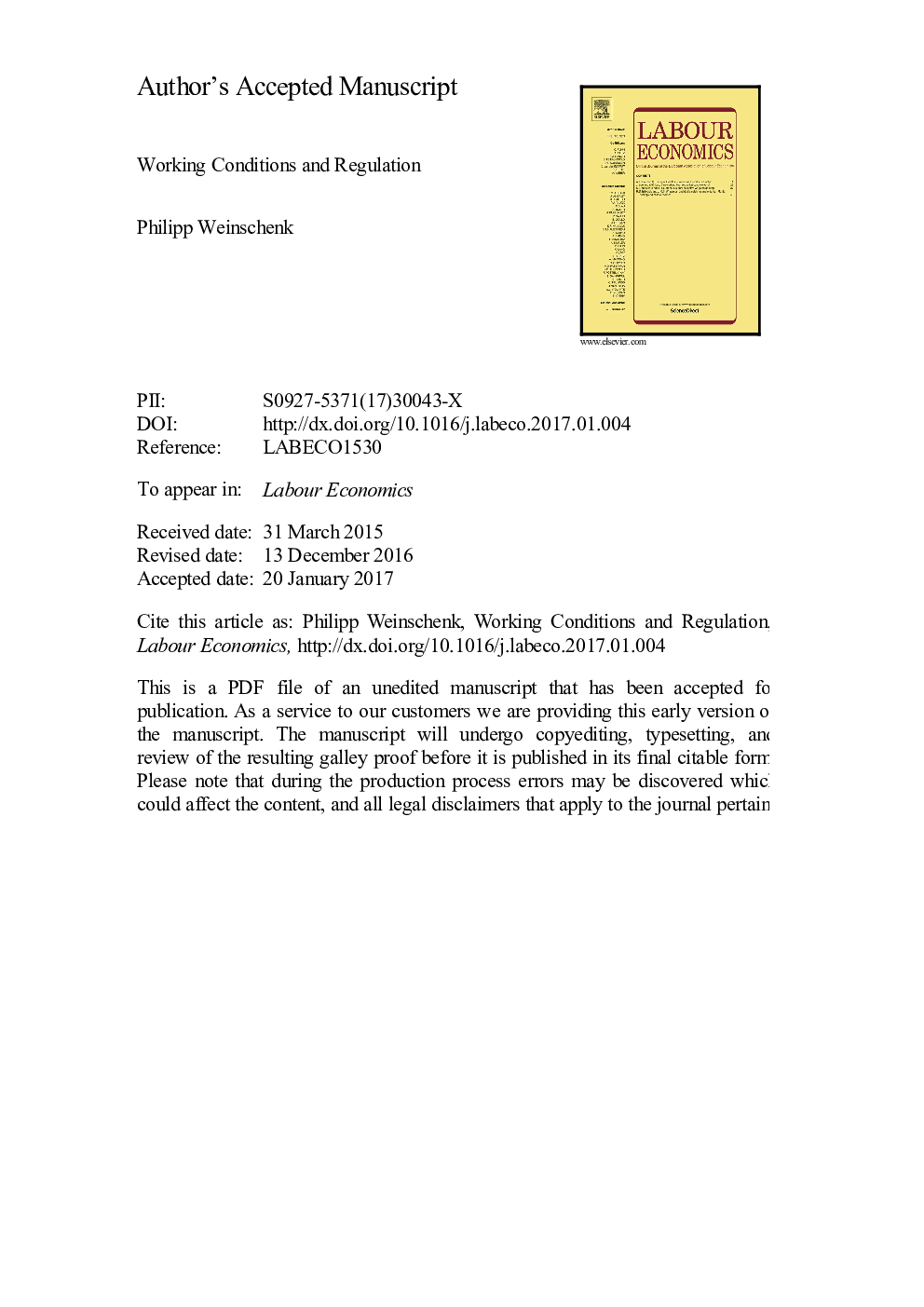| Article ID | Journal | Published Year | Pages | File Type |
|---|---|---|---|---|
| 5102032 | Labour Economics | 2017 | 31 Pages |
Abstract
Do employers invest sufficiently in the working conditions of employees? We examine this question in a simple principal-agent model. We show that, even though investment is contractible, the principal underinvests whenever her agent's alternatives are rather poor. This provides a reason for regulation. The indirect regulatory approach of taking measures that improve the agent's bargaining power or outside option at least weakly enhances the agent's well-being and welfare. The direct regulatory approach of demanding a certain standard of working conditions increases the principal's investment, but may nonetheless leave the agent's well-being unaffected and deteriorate welfare. This holds true since due to a standard, the principal may provide the agent with a lower-powered incentive scheme and implement a lower effort level.
Related Topics
Social Sciences and Humanities
Economics, Econometrics and Finance
Economics and Econometrics
Authors
Philipp Weinschenk,
